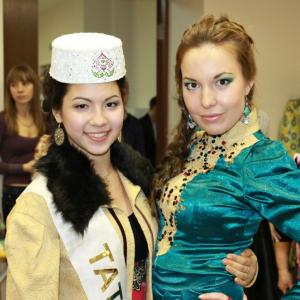Who was worms in the story of the death of the official. A.P.
The story of A. P. Chekhov "Death of the official" is one of the early works of the writer, in 1886, in 1886, the "motley stories" collection. It was written in the spirit of artistic realism. This direction in the literature in Russia was developed in the second half of the XIX century. At the end of the work, the writer goes beyond his framework, since he considered missing over death unacceptable.
Chekhov, "Death of the Official": summary, analysis
The theme of the "small" person is an official who is often without any reasons is in constant uncertainty and confusion, delivered here to the fore. This is how the author protests against any personality suppression. The summary of the story of Chekhov "Death of the Officer" very brightly displays all the consequences of such an appeal.
Heroes
Only three characters are present in the story. This is an official of the low rank of worm workers Ivan Dmitrievich, his wife and general of the brisks. The main attention of the work is aimed at the official who became the object of ridicule. But the nature of the rest of the characters leaves the uncooked A. P. Chekhov. "The death of the official" (summary) describes the worm, a small, pathetic and comic man. The genuine laughter causes his stupid and ridiculous perseverance, and his humiliation generates pity. In his persistent apologies, in front of the general, he passes all the borders and reverses his human dignity.

Contrast
After analyzing the topic "Chekhov," Death of the Officer ": a summary, analysis," it should be noted that the author in the plot opposes two personalities. This is the boss and subordinate.
It is from the conflict that A. P. Chekhov "Death of the official" begins. Summary shows its traditional development: General of the Breezers eventually shouted on the subordinate, because of this worms dies from the head of the heart. It would seem that the usual scheme for the plot. However, there is a presence of some innovative techniques in the work, because the general has reached the subordinate after that he himself brought him his annoying apologies.

Comic and somewhat unexpected reversal of events lies in the worldview of the worker official who died not at all because of fear, and from the fact that the general, as a man of high rank, violated his "Holy Principles".
Chekhov did not change their style, his laconic is striking. In his works, a deep meaning is always lighted, to know which is possible only through artistic details.
Summary of the story "Death of the official", Chekhov
Now, in fact, you can proceed to the very plot of the work. Ivan Dmitrievich worms, who serves the responsibilities of the institution, sits in the second row, looks into binoculars and enjoys the operetta French composer of Plankett "Kornville Bells". Then his face wrinkled, her eyes rolled down, breathing smotes, he bent and sneezed. Worms was a man very polite, he lasted as a handkerchief and looked around, whether he was placed by his Chishan. And suddenly discovered that the old man was sitting in front, wipes the bald with a handkerchief and murms something. Looking at the most careful, Ivan Dmitrievich saw that this was no one else like Stat General Bryzlov. From this it becomes bad. He awkwardly pulled him to him and began to whisper on the ear of an apology.

Trifles
Continuing Chekhov "Death of the official" (the summary of the work we present in the review) by the fact that the general replied that, in general, nothing terrible happened. But he continued to apologize and then apologize, then the general asked him to quietly listen to operetta. But the official did not lose everything and even went to the general to the general and began to ask for forgiveness, for which he answered that he had long forgot about it.
But now the worm seemed that General was keen and, probably, thought he wanted to spit in him. The official came home and told his wife about what had happened, she was frightened and said that her husband was too frivolous to this, which should be taken to the general and once again ask for forgiveness.

The next day, surrounding the new uniform, he goes to General. Which turned out to be a lot of visitors in the reception. Interviewing several visitors, the general saw Chervyakov, who began again with his ridiculous apologies because of yesterday's. Brizvalov answered adequately: "Yes, full! What trifles! "
Apologies
But worms did not stop everything and suggested even write an explanatory letter. And then the general could not stand and cooked at him, considering that he just mocks him. However, worms mumbled in bewilderment that he was not at all laughter.
In general, coming home, he thought and decided to go to the general again tomorrow. The next day, the brisks were simply not able to stand it and shouted on him: "I went out!"
This is how the Chekhov "Death of the official" completes. A brief content in the end tells about the fact that the worm has become bad, he backed up to the door and mechanically shoved home. Returning to the apartment, he went straight in Vitzmundire on the sofa and died.
Story A.P. Chekhov "Death of the Officer" will imbued with humor, usually inherent in this writer. The work is studied at school, so "the death of the official" brief content usually helps to meet him, understanding not only the plot, but also analysis. This will help further read this work - "Death of the official" in the brief content and perfectly understand each phrase created by the great writer.
The main hero of the story is Ivan Dmitrievich worms. He occupied a small and fairly simple post - Executor. This position in society, of course, also imposed his imprint on him, and therefore he was afraid of the authorities, and not only those under whose leadership he himself worked, but also officials more than the highest rank of any department. He served well, was helpful, but his few noticed him.
Once the main hero of the story "Death of the official" is sent to the theater. The case is happening in the evening, and Ivan Dmitrievich worms after the work day is in complete relaxation. Since the budget of the family of the main character "Death of the official" is small, then in the theater he is sent alone, and the wife stays to wait for him at home. It seems, the evening should be interesting and, of course, he did not foretell any trouble.
The state of Ivan Dmitrievich Chervyakova can hardly be expressed in several words, as it was not only pleased with such a coincidence, but just blissing from it. He came to the theater much earlier, took his place and calmly began to wait when the presentation would begin. His place was in the second row, from where and so everything was clearly visible, but for the sake of prestigious, because he did not come here here, he still looked at the stage from time to time, where it was about to start the presentation, Using a small theater binoculars.
In the theater worms did not go often, so in his life it was a big event. This evening, an unknown worker, Kornville Bells, was supposed to be presented on the scene.
And everything was just excellent, and the evening, probably, would end wonderfully. And then a small official from the story "Death of the official" went in a good order of the Spirit home, where a joyful wife would be waiting for him.
But then this story would not be completed, but would be very useless. That is why the authors have made a wonderful word to the beginning of the story - "what if". So what if it happened to Ivan Dmitrievich Wormherov?
At what point, suddenly, his eyes began to get away, they smoked, breathing smotes, and he unexpectedly for himself and she sneezed for others. But this did not have any kind of bewilderment, almost everyone who was present in this room did not even pay attention to it. And the worms himself initially also did not consider it necessary to think about what happened. Yes, it is understandable, because every person can sneeze. But as a polite person, he took out a handkerchief, wiped out and began to look around himself, the thought about not to disturb anyone.
But at some point, the worms noticed that a man sitting ahead of him, in the first row, also took out the handkerchief and now stubbornly wiped his head on which there was no hair at all. He is so stubborn by Teri Lysin, that Ivan Dmitrievich immediately realized that it was he who caused this an old disadvantage.
Worms looked and found out in an old man sitting ahead, Stat General. Ivan Dmitrievich, the main character of the story "Death of the official", understood that this man did not have anything to do with him, and he does not obey, but he still didn't work on himself, looking at how the eldest wipes his bald nose handkerchief Of course, he recognized this person. It was a Stat General of Bryzlov.
Worms decided that he would definitely apologize. Therefore, he leaned over all the torso ahead and began to whisper the words of apologies to the General in the ear. That was also inconvenient, and he answered that nothing terrible happened. But Ivan Dmitrievich was not stopped, and he continued to apologize. The general asked him to forget about this situation and watch the presentation.
Worms tried to do this, but what happened on stage was no longer interested in him. In the intermission he decides to make an apology attempt. But the general did not listen, saying that he had already forgotten about everything. But Ivan Dmitrievich did not like his eyes, then as he looked at him. And therefore, all the rest of the presentation he already thought about what happened, and how he would go further.
After the presentation, going home, worms did not even notice what the road he goes, as his thoughts were engaged only what happened. Entering his apartment, Ivan Dmitrievich immediately told how impolly he did with the brisk. But also did not like the reaction of his wife. So, the woman first frightened, but then, having learned that the general calmed down from another department and completely forgot about this case. Although she still suggested him to go back and apologize. But such an incident did not give rest to the worm.
Reflecting all night, the hero of the story "Death of the official" could not fall asleep. The new day, he began with the fact that he led himself in order: handted, changed the uniform to a new one and went to the brisk to the service to talk to him and, of course, apologize.
But on this day, the Stat General was quite a lot of visitors. In the reception room, Ivan Dmitrievich has already crowded many people, and the brisk himself has already started reception. After talking with several shelters, Stat General raised his eyes and worm, as if he wanted him about what he wanted.
And here is a small official, staring and embarrassed, again began to ask for forgiveness for yesterday's act, which he committed inadvertently. But it was even more angry with Stat General, and he tried to quickly get rid of this conversation, and from the very worm, turning to other visitors.
But Ivan Dmitrievich all this situation did not give peace and he did not want to leave the adoptive hall, not talking, as it seemed to him, with an offended Stat General. It seemed to him that the brisks were angry with him, and it did not give him peace, he decided to repeat the attempt again. But the main character of the story "Death of the official" first decided to wait for the end of the reception, and as soon as the brisks stopped talking to the last visitor and had already headed the houses, the worms resumed his attempts.
He began to tell the Stat General about how he regrets what he had happened and was very repent. But the face of the Bizvalov very much distorted, as if he was already from these apologies about to pay. He dramatically closed the door right in front of Ivan Dmitrievich's nose, deciding that he just mocks him.
Worms decided not to come to the brisk, since he did not want to communicate with him, but he had to apologize - he had to somehow. So Ivan Dmitrievich chose a new path of apologies: write a letter to the Stat General, where in detail and set out all his apologies. In the evening, he composed this letter, but somehow he did not work out. Therefore, the Nutro worms again went to the brisk to apologize.
His apologies, he soaked up the Stat general that he could not stand and put Chervyakov Vaughn from the reception, stuck even his feet. This not only upset the main character of the story "Death of the official", but also led to a huge horror.
At the upset and scared not for the joke of worm at this very moment, something interesting happened in his stomach, as if something was cut out there. He had time to slip out the door and then slowly and quietly flew through the streets, noticing anything around him. But the houses already a small official Ivan Dmitrievich worms completely already frustrated on the sofa and immediately died.
In Russian literature, Chekhov is considered "Pushkin in Prose", due to the scale and unsurpassed artistic manner. In the story of Chekhov "Death of the Officer" reveals the theme of a "little man", but not like Gogol or Pushkin. In the work of the Death of the Official, the analysis provides for familiarization with the history of creation, problems, the characteristics of the genre and composition - all this is in our article. It will be useful for students in grade 9 when studying Czech's creativity in literature lessons.
Brief analysis
Subject - The theme of a small man, self-sufficiency and sinoprech.
Composition - A clear, characteristic of the genre of the story. The identity of the narrator is visible, bringing an assessment and emotional color what is happening.
Genre - Story. Chekhovsky story is similar to the form of "scenes", so his works are particularly good when setting in theaters and adaptation.
Direction - Realism peculiar to the second half of the 19th century.
History of creation
There are several versions of creating a story "Death of an official." One of them suggests that the story happened in reality, in the Bolshoi Theater, which the author found out from the manager of the imperial theaters.
According to another version, the source of inspiration for Chekhov became pearls Alexey, a famous humorist and a fan of the drawing. There were rumors that the joker specifically stepped on his leg to one high-ranking face, and after I got it apologies and visits of courtesy.
The third version of the appearance of the Chekhov plot: the case that occurred in Taganrog (the Motherland of the Writer) in 1882. A certain employee of mail after the conflict with the boss tried to bring his apologies, but he did not accept and did not understand. In desperation, the employee committed suicide. Be that as it may, the artisticly rethinking plot received the incarnation in a brilliant story, written in less than two days. For the first time, the work was published in 1883 in the journal "Splitters" under the pseudonym A. Chekhonte.
Subject
In the story of Chekhov "Death of the official" rises subject A little man, Rabolpsky consciousness, a derogatory attitude towards himself in the face of the highest ranks.
The idea of \u200b\u200bthe story In order to see the symptom of kindness and lime him to the root - it is for this Czechs that exaggerates many important details in the narration, uses Ironia with Grotesque. The problems of society, a modern author, float out, sharply and topically, in a short story genre.
Cherkivakov conflict with General Bizvalov - this character conflict with me. The meaning of his actions is not impaired and inexplicable for the moral "healthy" personality. Problematics story Conducted to the Society Disease - the habit of reckoning before those who occupies a higher position in society, which is quite relevant and in our time.
Worms and brisk - heroes opposites: It was the general that the general had to become a negative character, but Chekhov, they changed roles. The general for a rarity is a positive, adequate character, and the younger rank is a cowardly, not confident in itself, annoyed, inconsistent and, at least, strange in his actions and aspirations. The main idea of \u200b\u200bthe work is the loss of the moral foundations, ideals on which the "healthy" person holds.
Composition
Comic and tragic merged into one, thanks to the masterfully selected artistic means in the story of Chekhov. Analysis of the work allows us to conclude that its composition is traditional for a small genre. This is indicated by a monologue of the narrative, which makes a note in the perception of what is happening.
The identity of the narrator sometimes pops up quite brightly with comments and emotional evaluation of events. In the structure of the story, it is simply to highlight the tissue, culmination and other components of the plot. It is dynamic and born, thanks to Chekhovsky LAKONIS and accuracy. Each word (names of characters, appearance description) Each sound, each phrase is accurate and recovered - they serve a single goal in the work of Chekhov. Master of situational sketches, he skillfully serves content within the traditional composition. Perhaps that is why, almost all works of Chekhov are fascinated, put on the stage of theaters and have great success in the audience.
main characters
Genre
Chekhov reached unprecedented heights in the story genre. A feature of his story can be considered similarity with the scene. The author gives an original event outlined picture, as if watching what was happening from the outside. The magnitude of the story to Chekhov was a nondescript epic small form, which was considered a fragment of a novel or a story. It is thanks to Anton Pavlovich that this genre acquired popularity, fame and a full embodiment in the literature.
Test on the work
Rating Analysis
Average rating: 4.1. Total ratings received: 258.
- Category: Preparation for GIA
Time and history of creating
The story "Death of the official" was first published in the journal "Shards" in 1883 with the subtitle "case". Included in the Collection "Mottle Stories".
Small official Ivan Dmitrich worms watched the performance of "corneeling bells" and sneezed. He apologized, but, to his horror, he saw that the Stat General, sitting in front of him wipes Lysin and neck glove, since the worms accidentally sprinkled him. Worms clinked from horror. He once again apologizes in the intermission in front of the general, he annoyed apologize.
But the worm of this incident does not give rest. He comes to the General Service, to apologize again. Again, he gets in response indifference and decides to write a letter to general. But it seems and again goes with apologies to the general. The one whipped by his obsession shouts at him and tells to get out. The worms could not transfer such general "campaign", came home, lay down on the sofa, without removing the Vitzmundra, and died.
Poetics, composition, idea
The genre of the work is a story. The work is very small in volume, it has a clearly designated composition, each part of which carries an important semantic load.
The first two suggestions are the exposition of the story: "One fine evening is no less beautiful executor, Ivan Dmitrich worms, sat in the second row of the chairs and looked into the binoculars on the" Kornvilian bells ". He looked and felt at the top of bliss. "
In this fragment there is important information: the hero of the story is a small person, a small official. The author's irony is heard and twice the repeated word "beautiful", and in the word "on the top of bliss" is clearly exaggerated-mockingly transmitting the state of the Executor.
For this injection of "excellence" we are waiting for an unexpected turn, and then it follows: "Suddenly" - Chih official: "His face piled up, the eyes got down, the breath stopped ... He took the binoculars from his eyes, bent and ... Appch !!! "
This episode is the conflict tie. Comicness of the situation strengthens the author's comment: "Everything is sneezing."
Next, the "internal conflict" is unfolding: worms understands that "worried" is not just a person, but a general. From that moment on, he not only ceases to be "on the top of bliss", and with each subsequent episode rolled into the abyss of the awareness of his human insignificance. It is irresistible "electricity rank". It is this fear of the higher-rank and awareness of his insignificance as a result leads him to death.
Worms will now walk "explain" his misconduct, because the general "impatiently moved to the bottom lip", and "the worms saw his eyes in his eyes."
Its actions now manages fear. Further behavior of the official is absurd.
The absurdity of the situation is growing: "On the other day, the worms put on a new Vitzmundir, cut off and went to the brisk explain ..."
These details of the preparation for a conversation with the general, underlined by Chekhov, give a bright characteristic of the state of his hero: for him it is a solemn moment of solving further fate.
With each subsequent apologiar to worm, the increasingly irritated reaction of the general makes an explanation is increasingly impossible. The worms with maniakal perseverance wants to "explain", because only after the "true" forgiveness will be able to restore his spiritual peace.
Komically looks the "riot" worm, when General once again exhibits him, suspecting a mockery in sincere operability of the official: "What are there mockery? - thought worms. - There is no ridicule at all! General, and can not understand! When so, I will not apologize more to this fanfarone! Damn with him! I will write him a letter, and I will not go! By God, I will not be! "
But he could not invent the letters - the intellectual abilities of the official are mortally amazed by fear of high.
The climax of the story is the last campaign of Chervyakov to General with apologies for the involuntary chic. The cry of an angry general is seen by an official with a terrible shock, blatant injustice that his humiliated consciousness cannot be taken. There is an intercourse - the death of the official.
The outcome of this insignificant situation is also ridiculous and absurd: the person does not die from such trifles (I unsuccessfully sneezed, insulted convincingly apologized, it turned out to be in an awkward situation with a person with superior, etc.). But already in the title "Death (not a man!) An official" Chekhov emphasizes that this is possible precisely in the case of an official who lost other life or values \u200b\u200bother than the official.
The work of Chekhov is a story not about the disappearance of the unique human individuality, but about the cessation of the functioning of a rigor of some soulless mechanism.
The writer exagresses the situation, the character of the hero, emphasizes his "Presbykanskaya" nature of the speaking surname.
The story contains a comic, turning into an accusatory: destruction in man of the human, lack of life of the spirit, substitution of life "functioning" as a screw of the state mechanism - this is subjected to a writer with a sharp condemnation. This is the idea of \u200b\u200bthe story of the "death of an official."
History of creation
"... In Russian literature, the amazing mind flashed and disappeared, because after all, only very smart people, those whom the mind" overbursten, can only say good joke, the good joke, "he wrote about Talent Chekhov I.A. . Bunin. L.N. Tolstoy spoke about him: "Chekhov is Pushkin in prose." Under these words, the strongest artistic impression was meant, which he left Chekhov prose, who was surprised by his brevity and simplicity.
According to the memoirs of Chekhov, the story of the story "Death of the official" told Anton Pavlovich Begichev. He was simple: some kind of man, carelessly referred to the theater, the next day came to an unfamiliar man and began to apologize for causing him anxiety in the theater. Funny anecdotal case.
"The death of the official" refers to the so-called early stories of the writer. Published in 1883 with the subtitle - "case". "The death of the official", like other stories of the writer, included by the author in the collection of 1886 "Mottle stories". All these works reveal the topic of a small man.
Rod, genre, creative method
Before coming to Russian literature A.P. Chekhov was believed that a small epic form was a "fragment" of a large (romance) form: "Chapter, eliminated from the novel," said V.G. Belinsky about the story. The differences between the novel and the story (so called the story) were determined only by the number of pages. Chekhov, according to L.h. Tolstoy, "created new, completely new ... For the whole world, the form of Scripture ...".
The story "Death of the official" was written in the genre of "scenes". This is a short humorous story, a picture from nature, whose community consists in the transfer of the conversation of characters. Chekhov raised the scene to the level of large literature. The main thing in the scene is the speech of the characters, plausible and consumer and funny at the same time. An important role is played by the title and speaking names of the characters.
Thus, the problem of the story "Death of the official" is announced in the title itself, which represents the combination of opposite concepts. An official is an official, in a uniform, fastened to all buttons (this applies to his feelings); He, as it were, deprived of the living movements of the soul, and suddenly - death, although sad, but still a purely human property, that an official, such an idea about him is contraindicated. The work of Chekhov, it can be assumed in advance, is a story not about the disappearance of human individuality, but about the cessation of the functioning of the official, a certain soulless mechanism. In the story, there is not so many people as his outer shell.
The story is generally written in the framework of critical realism. However, in the second half of the story, the behavior of Cherkivakov passes the limits of household likelihood: too, it is a cowardly, too annoying, it does not happen in life. In the end of the Czechs is completely cut, open. This "died" he takes a story beyond household realism. Therefore, this story is felt as quite humorous: death is perceived as non-seriousness, conventionity, exposure of admission, move. The writer laughs, plays, the word "death" itself does not take seriously. In the collision of laughter and death triumphs laughter. It determines the overall tonality of the work. So funny Chekhov goes into the accusatory.
Topic
Rethinking the traditional theme of a "little man", coming from Pushkin, Gogol, Turgenev and Early Dostoevsky, Chekhov at the same time continues and develops in the new conditions the humanistic pathos of this direction. Like the "stationander" Pushkin, Schinel, Gogol, "Poor People" Dostoevsky, Chekhov's works are performed by protest against the suppression and distortion of the human person, in new historical conditions even more merciless and sophisticated. At the same time, in the story, the subject of ridiculous is a small official, which is depicted and reptiles when no one forces him.
Idea
Chekhov usually in the center of the story is not a character and not an idea, but the situation is an unusual case, anecdote. Moreover, the case is not accidental - it highlights certain patterns of life, the essence of character. Chekhov had a brilliant gift to notice such situations in reality in which the characters would have revealed not just with the maximum, but with an exhaustive fullness and as socio-ethical types, and as people with psychology characteristic only by him, manner behavior.
In the story "Death of the official", the writer showed how a small official of worms, being in a humiliated position, not only does not seek to get out of it, but himself proclaims slave behavior. As it became the subject of ridiculous in the story. Chekhov told for high moral ideals.
Basic heroes
The story has two main characters. One of them is a general who plays a minor role and only reacts to the actions of the hero. The general is deprived of the name and patronymic, and this is natural, because we see it through the eyes of Chervikov, but he sees only the uniform (this word is often repeated in the text) of an important person. About the general We will not know anything substantive, but it is obvious that he, too, in violation of the tradition, a little bit of "humiliated and offended" worm. One thing is clear: the characters of the story speak in different languages, they have various logic and understanding - the dialogue between them is impossible.
The second character is the worm official - the object of mockery in the story. Traditionally, in Russian literature, it was a "small", poor, "humiliated and offended" man causing sympathy from the reader. Chekhov, with his indestructible feeling of freedom, sought to overcome this stamp. He wrote Brother Alexander in 1885 (after the creation of the story "Death of the official") about "small" people: "Throw you, make mercy, your oppressed college registrars! Do you really do not feel silently that this topic has already been tangled and caught up with sowing? And where are you there in Asia do you find those flour, who are experiencing in your stories of nonsense? Truly you tell you, even reading terribly! It is more realistic now to depict the college registrars that do not give their excelice to live. " Little man worms here and ridiculous, and pity at the same time: it is ridiculous with his ridiculous perseverance, pity because he degrades himself, renounced from his own human personality, human dignity.
Plot and composition
In the story of Chekhov, one of the participants in the events turns out to be a small official, the other - General. The surname of the official - worms - speaks for itself, emphasizing the gentlement of the Executor1 Ivan Dmitrievich. This initial situation creates a traditional conflict. Garked general on a small, defenseless, dependent person - and killed him. Chekhov, General really shouted on the official, as a result of which: "In the abdomen of worm, something broke away. Not seeing nothing, I don't hear anything, he backed up to the door, went out into the street and shoved ... Calling mechanically home, without removing the Vitzmundra, he lay down on the sofa and ... died. "
Thus, it appears as if the usual storyline. However, there are substantial shifts. Start by the fact that the general snapped on his visitor only when he brought him all new and new visits, all new and new explanations, and all on the same topic, to complete exhaustion, and then to the allocation.
It does not look like a pitiful, dependent face and official. After all, he documeks his apologies to General because he depends on him. Not at all. He apologizes, so to speak, on fundamental considerations, believing that respect for persons is the sacred basis of public existence, and it is deeply discouraged by the fact that it is not accepted. When the general once again dismissed him, noticing: "Yes, you just laugh, milostisar! .." - worms did not get angry for a joke. "What are there mockery? - thought worms. - There is no ridicule at all! General, and can not understand! " Thus, worms are radically different from previous literary fellow. In the worldview worm and is an unexpected, comic turn of a traditional theme and a storyline. It turns out that worms dies at all of the fright. The drama of man is that he did not bring the principles for him for him, and not anyone else, but a silent face, General. This will not make worms. So the harmless joke develops under the pen of Chekhov to satire on the dominant morals and customs.
Artistic peculiarity
In the history of Russian literature A.P. Chekhov entered as a master of a small genre. With the name of the writer, the formation of a satirical story, which determine the features of which were laconicism and aphoristicity.
In the title "Death of the Official", the main thought of the work is laid: the opposition of the rank and man, the unity of comic and tragic. The content of the story produces a strong artistic impression due to brevity and simplicity. It is known that Chekhov adhered to thoughts: "write talented - that is, short." The small volume of the work, its fictional laconicity determine the special dynamism of the story. This particular dynamic consists of verbs and their forms. It is through the verdal vocabulary that the plot is being developed, and the characteristics of heroes is given; Although, of course, the writer also applies other artistic techniques.
In the story of the characters talking surnames: worms and brys. Worry official serves as an executor. The meaning of this word is mentioned above. The second value of this word (it is marked in the dictionaries as outdated) is the following: Executor - the one who produced an execution, that is, punishment or led them. Today, this value is perceived as the main, as the former (the junior official in the office) is already forgotten. The phrase extector of worms is also chosen on the principle of comic contrast characteristic of Chekhov: an executor (that is, that is punished) and suddenly "funny" surname ... worms.
According to the writer, the literary work "should not only give a thought, but also the sound, ... sound impression." In the story, it is in a literal sense, "But suddenly his face frowned, his eyes got down, his breath stopped ... He took the binoculars from his eyes, bent and ... APCHE !!! He sneezed, as you can see "- causes a comic effect.
In a small story, there are no extensive descriptions, internal monologues, therefore, the art detail performs on the fore. It is the details that are carrying a huge semantic load in Chekhov. Literally one phrase can say everything about a person. In the last phrase, the story "Death of the official" author gives almost an explanation to everything: the official, "coming mechanically home, without removing the Vitzmundra, he lay down on the sofa and ... died." Vitzmundyr, this official uniform, as if an enrichness to it. Fear before the superior rank killed a man.
In the story "Death of the Officer", the author's position is clearly not expressed. It seems the impression of objectivity, indifference Chekhov to what is happening. The narrator does not appreciate the actions of the hero. He rises them, providing the reader with the opportunity to make his own conclusions.
The value of the work
Anton Pavlovich Chekhov is one of the greatest Russian-classic writers. He is known as a master of realistic story. The writer himself said this: "Artistic literature is because it is called artistic, which draws life such as it is in fact." The truth of life attracted it primarily. The main theme of Czech's creativity (as Tolstoy and Dostoevsky) was the inner world of man. But artistic methods, artistic techniques that were used in their work writers are different. Czechs are rightfully considered a master of a short story, novel miniatures. During the long years of work in the humorous journals of Chekhov, the skill of the narrator was finished, learned to a small amount to accommodate maximum content.
After the appearance of the story "Death of the Officer", many critics said that Chekhov wrote some absurd history that had no relation to life. The situation is indeed brought by the writer to the absurd, but it is precisely this that allows you to better see the absurdity of the life itself, which reigns low-planness, kindness, the deification of the bosses and the panic fear of him. According to the testimony of M.P. Chekhov, Brother writer, in the Bolshoi Theater there was a valid case close to the described, however it was unclear whether he was known to Chekhov. Other is known: in January 1882, Chekhov received a letter from his Taganrog familiar A.V. Petrova, which said: "On the eve of Christmas ... Our postmaster (the most famous monster and pedant) threatened one official (the older sorter K.D. Shchetinsky) to give it under the court, seems to be a violation of discipline, in a word, for personal insult; And then after an attempt to ask for forgiveness, after an attempt to ask for forgiveness, he left the office yes in the city garden ... a few hours before the uterus and hanged himself ... ". In other words, Chekhov managed to recreate a typical, albeit an absurd situation.
"Russian critics wrote that neither the style of Chekhov nor the choice of words, not all other testifies to the special writing care, which was obsessed with Gogol, Flaubert or Henry James. The dictionary of his poor, combinations of words banal; Juicy verb, a greenhouse adjective, a minting epithet made on a silver tray - all this is alien to him. He was not verbal virtuoso like Gogol; His muse was dressed on everyday dress. Therefore, Chekhov to give good as an example of the fact that it is possible to be an impeccable artist and without exceptional shine of verbal technique, without exceptional care about the elegant clauses of proposals. When Turgenev is accepted to talk about the landscape, it can be seen how he is concerned about the smoothness of the trouser folds of his phrase; I dropped my leg, he glances at the color of the socks. Chekhov is indifferent - not because these parts do not matter, for the writers of a certain warehouse they are natural and very important - but Chekhov is still because he was alien to all verbal ingenuity. Even a light grammatical irregularity or newspaper stamp was completely not disturbed. The magic of his art is that, despite the tolerance of misses, which would be easily avoided by a brilliant newcomer, despite the willingness to be content with the first oncoming word, Chekhov could convey the feeling of beauty, completely inaccessible to many writers who were considered that it was known for certain that Such a luxurious, lush prose. He seeks this, highlighting all the words the same dim dim light, giving them the same gray shade - the average between "the color of the dilapidated hedge and hanging clouds. A variety of intonations, flickering of the adorable irony, truly artistic stability of the characteristics, the colorfulness of the details, the fooling of human life - all this is purely Chekhov The features poured and overtakes the Radia-blurry verbal Maorevo "(V.V. Nabokov).







